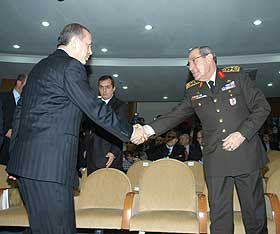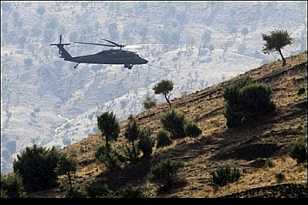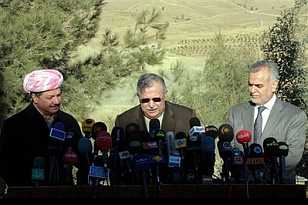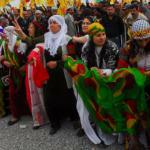In an interview with the Evrensel newspaper published on 23 December, Ertugrul Kürkcü, bianet's project coordinator, evaluated the current discourses on the Kurdish question.
Article 221 is "old-fashioned pedagogy"
Asked what he thought about Article 221, the controversial article designed to allow for the "return home" of PKK members, Kürkcü said:
"You cannot prepare the ground for negotiations with adults who chose a political struggle out of their own free will by saying 'You are going to give up your political convictions, you are going to accept that you are common criminals, you are going to inform on your friends, you are going to give your organisation to the justice, and then we will hand you over into your mothers' arms.'"
Assumption that PKK will unravel
Kürkcü criticised this "old-fashioned pedagogy" which treated individuals like children who had made mistakes. He said that recent political developments encouraged such an attitude. It is being assumed that the lack of support for the PKK from the USA and the KDP, as well as wide-spread military attacks on PKK camps will frighten the PKK. Once things start to unravel, so the theory goes, they will surrender without caring about being treated like children. "The remaining hard core will then be destroyed, isolated in the mountains and fed to the wolves and birds. This is being assumed."
Asked about the relations between the ruling Justice and Development Party (AKP) and the army, Kürkcü said: "I do not believe that either the AKP or the Turkish Armed Forces (TAF) are trying to solve the Kurdish question. Because if they have enough information and intelligence [...], they know that the Kurdish question cannot be solved within the borders of just one country. If we are talking about a real solution, this would mean that the Kurds would take their own destinies into their own hands in all the countries they are ruled by; since this ideal situation does not exist, there is currently no possibility of a solution."
Kurdish question presented as security issue
Kürkcü emphasised that the army and the AKP government insisted on defining the Kurdish question as a security issue and that Turkey's military operations were also an attempt at playing a bigger role in the region. For Kürkcü the recent "air attacks with 50 planes in one night, fuel transfer in the air, using laser technology to identify and hit targets" were all aimed at sending a message about the strength of the TAF to the region, rather than really targeting the PKK.
Indeed, Kürkcü saw this military operation as part of a regional project which would protect both American and Turkish interests in the region and obstruct the division of Iraq. In short, the bombings were a message to Mesut Barzani, leader of the regional Kurdish government in Northern Iraq.
Collaboration of AKP and TAF
As for the domestic strategy, Kürkcü believed that the AKP has profited from a shift in support of the pro-Kurdish Democratic Society Party (DTP), which, together with its predecessors has lost its strong regional support. Under the AKP government, there has been a cultural shift towards religious reactionary movements; thus, for the AKP, so Kürkcü, "the Kurdish question has been reduced to the 'freedom to read the Holy Koran in Kurdish'."
As for the army, despite its aversion to these religious discourses, it collaborates with the AKP in order to share power:
"What does the army not want? First, it does not want Kurds in Ankara [in parliament], the DTP is being marginalised. Second, it does not want those who have used arms against the army to be treated equally, that is like citizens. It wants the marginalisation of the hard core of the PKK and wants the remaining people to be treated as victims of fate who will come down from the mountains with return home/remorse laws..."
Struggle for regional influence
According to Kürkcü, there is the possibility that Iraq will become divided, and that such a division would represent both a risk and an opportunity for Turkey. An opportunity would be the integration with the Iraqi Kurdish region. The risk is an increase in fighting in the area and a resulting fragmentation which could also affect Turkey. Both the AKP and the TAF, so Kürkcü, are struggling for regional power.
Thus, the PKK violence has been used as a kind of catalyst to balance the international interests of both Northern Kurdistan and the AKP, the TAF's aim for regional dominance and Turkey's regional hegemony. The army and the government have successfully presented operations as a step towards solving the PKK issue, both domestically and internationally.
"What could have been the opposite? For a democratic solution, the Kurdish and Turkish workers and intellectuals and all the democratic groups in Turkey could have rallied their forces around a common project. This could still be done..."
(TK/AG)
*The full interview was published in the Evrensel newspaper's Sunday supplement on 23 December 2007.










